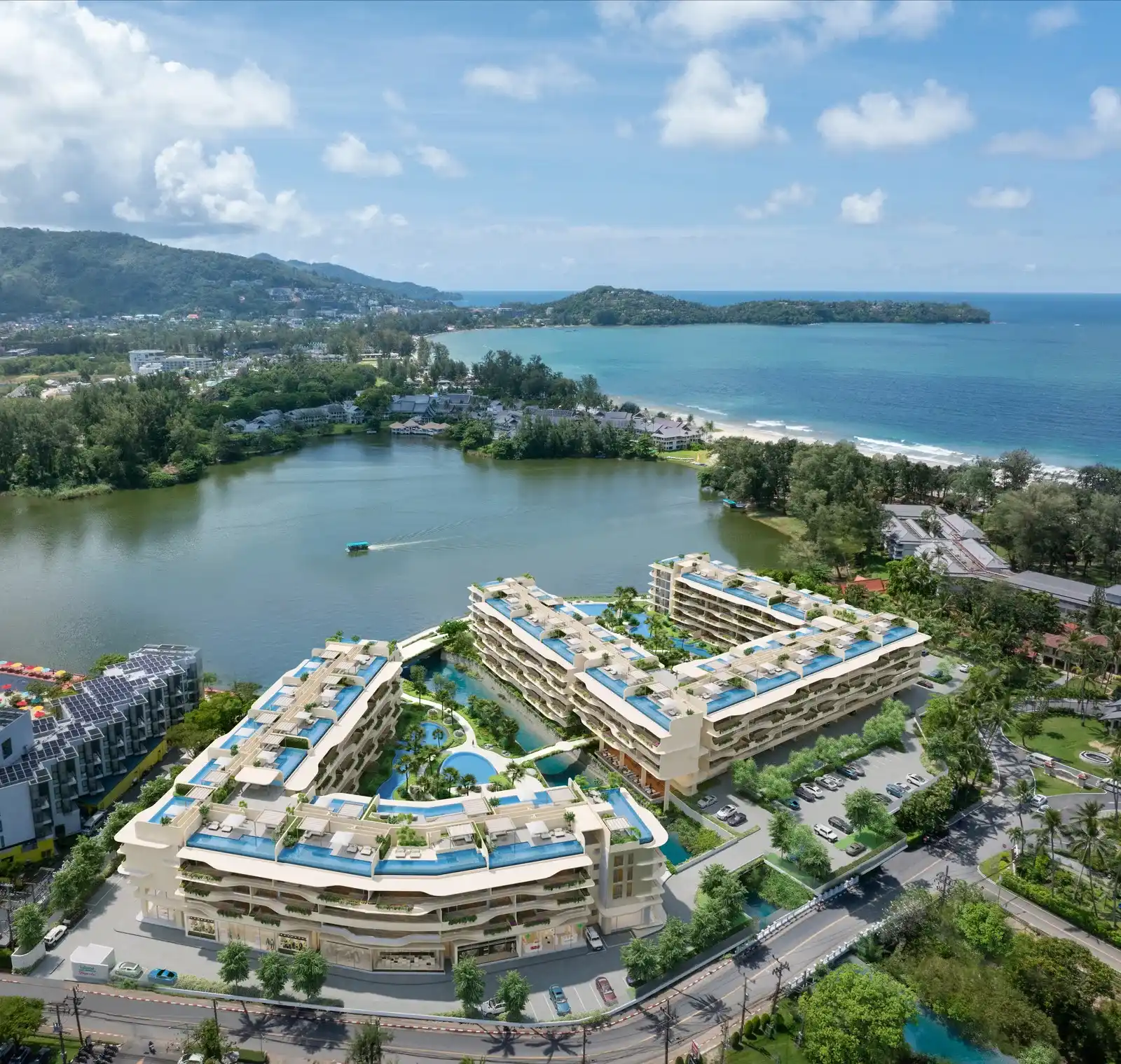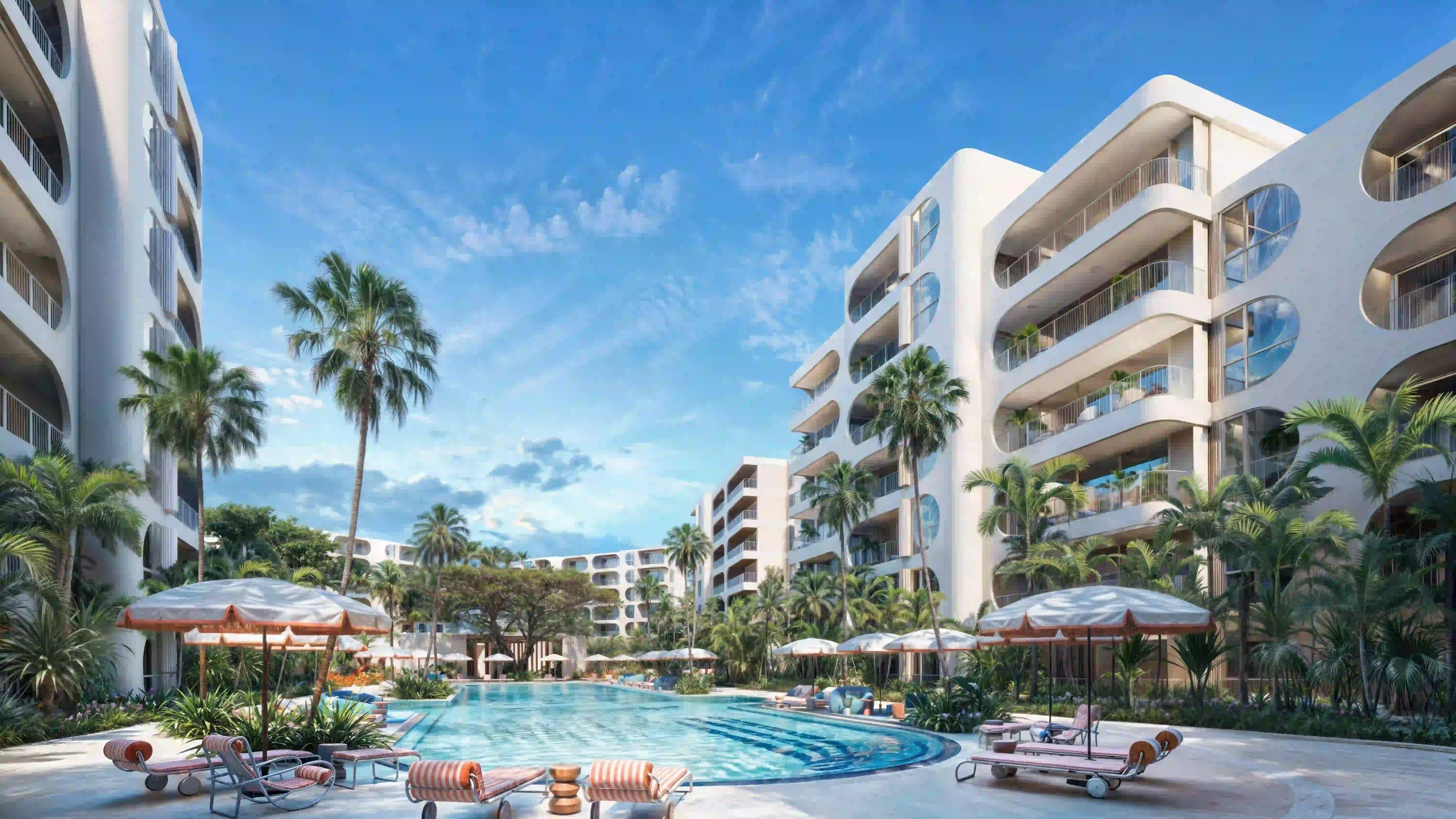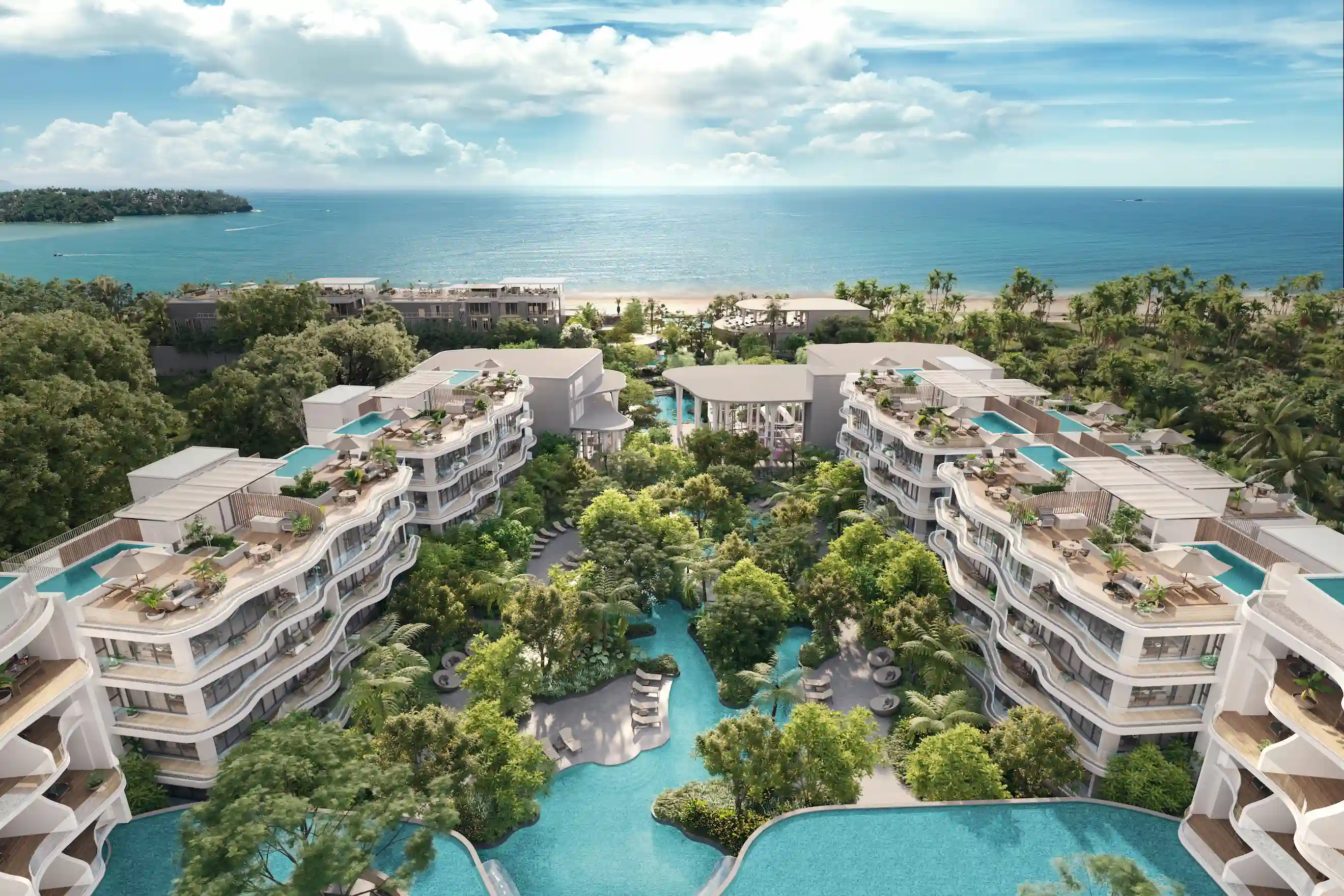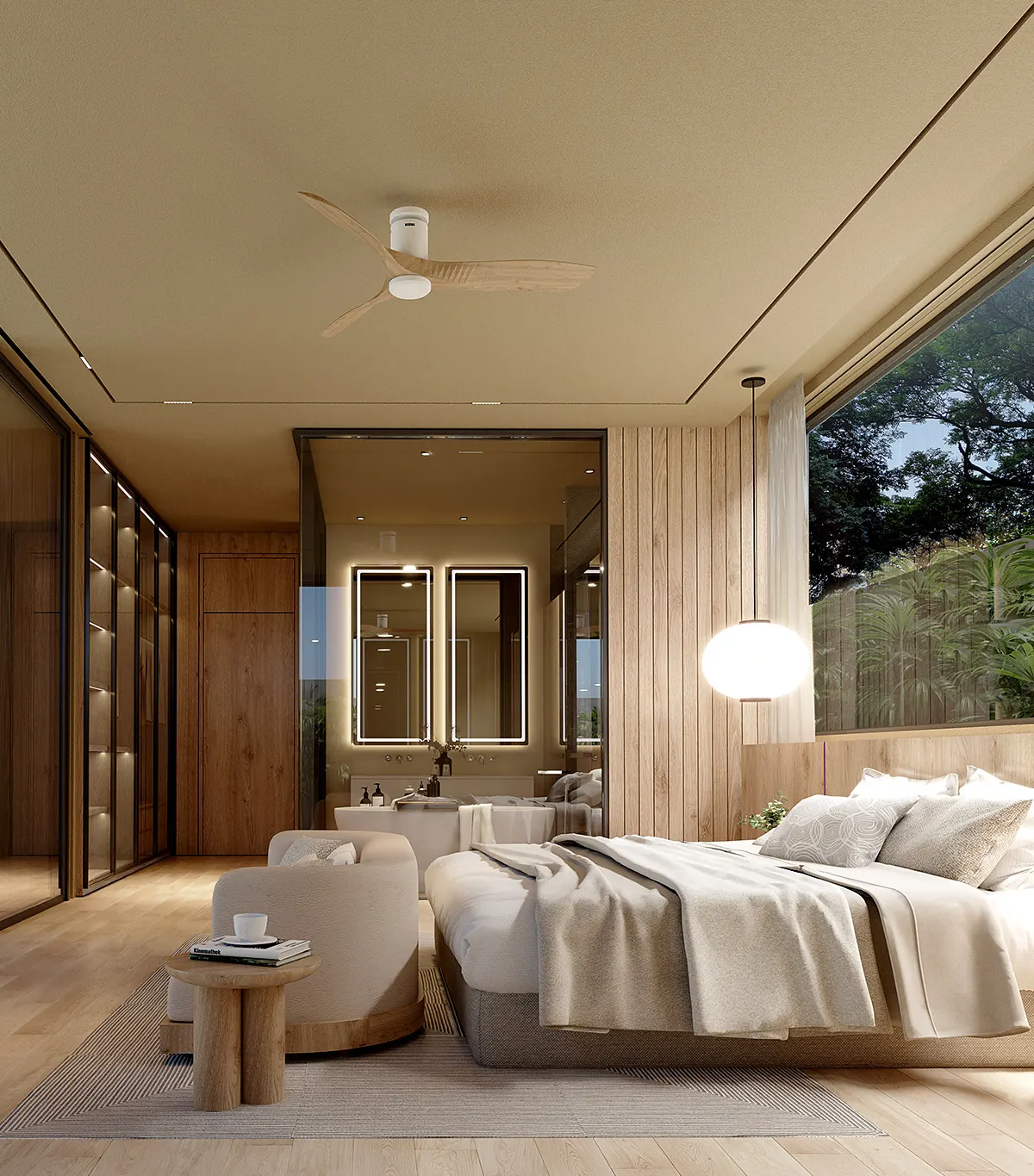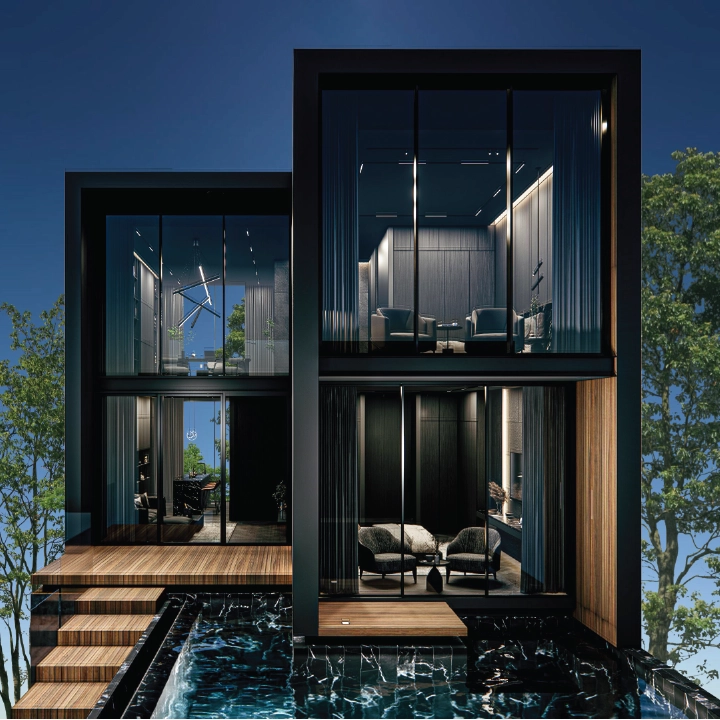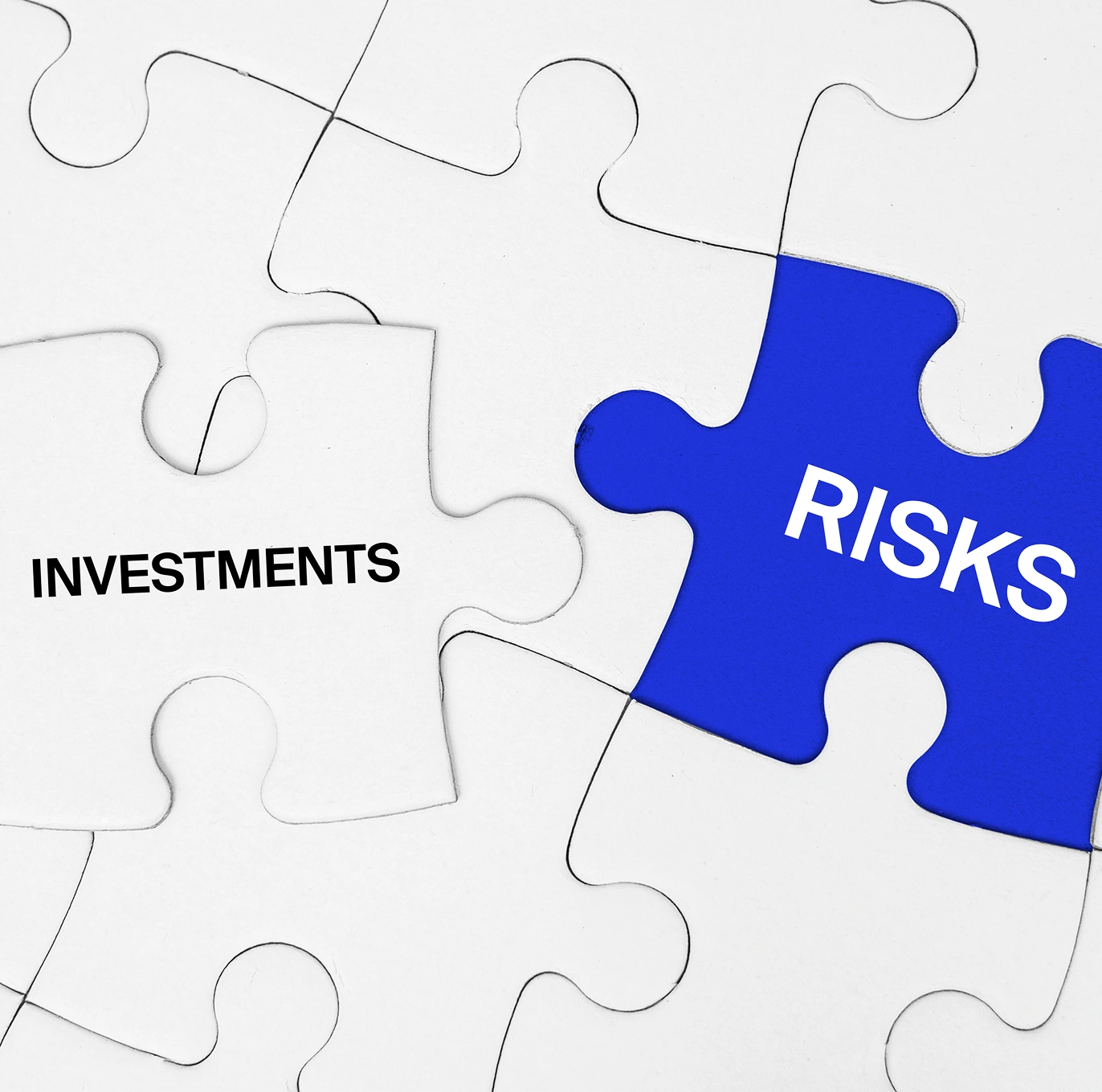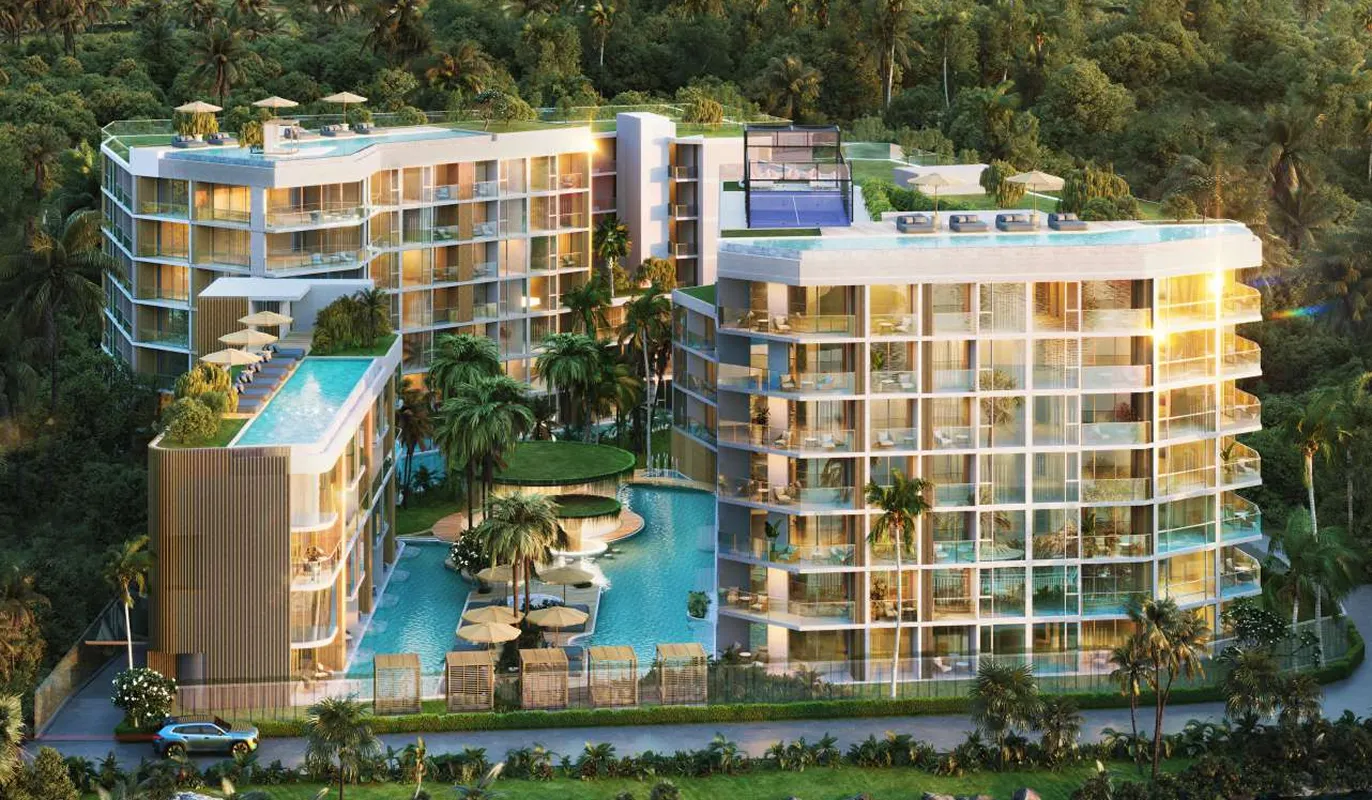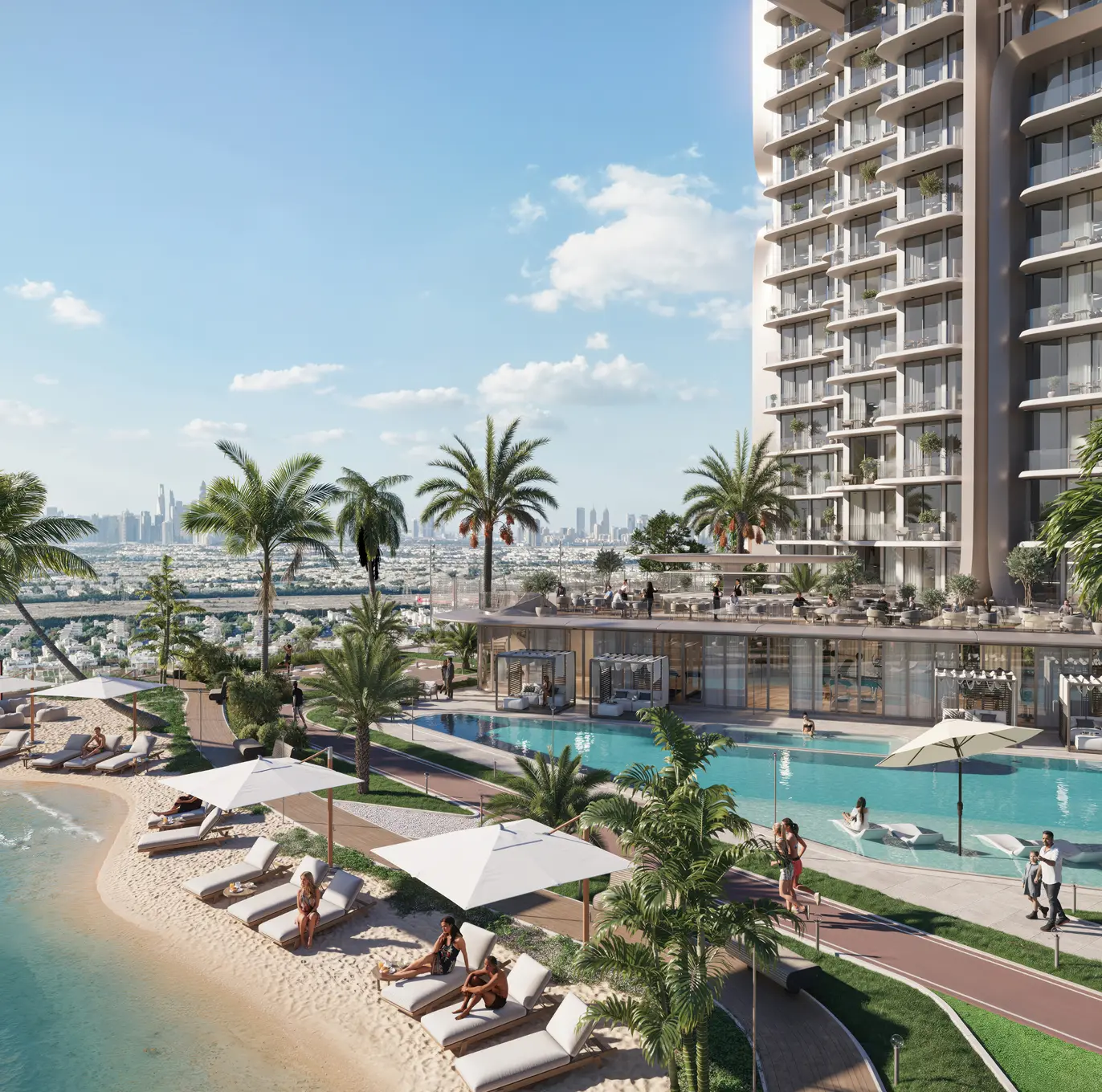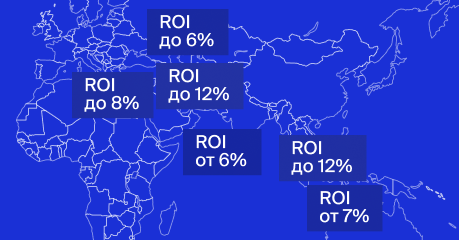Buying a condo in Thailand: rules, risks, and smart investment tips
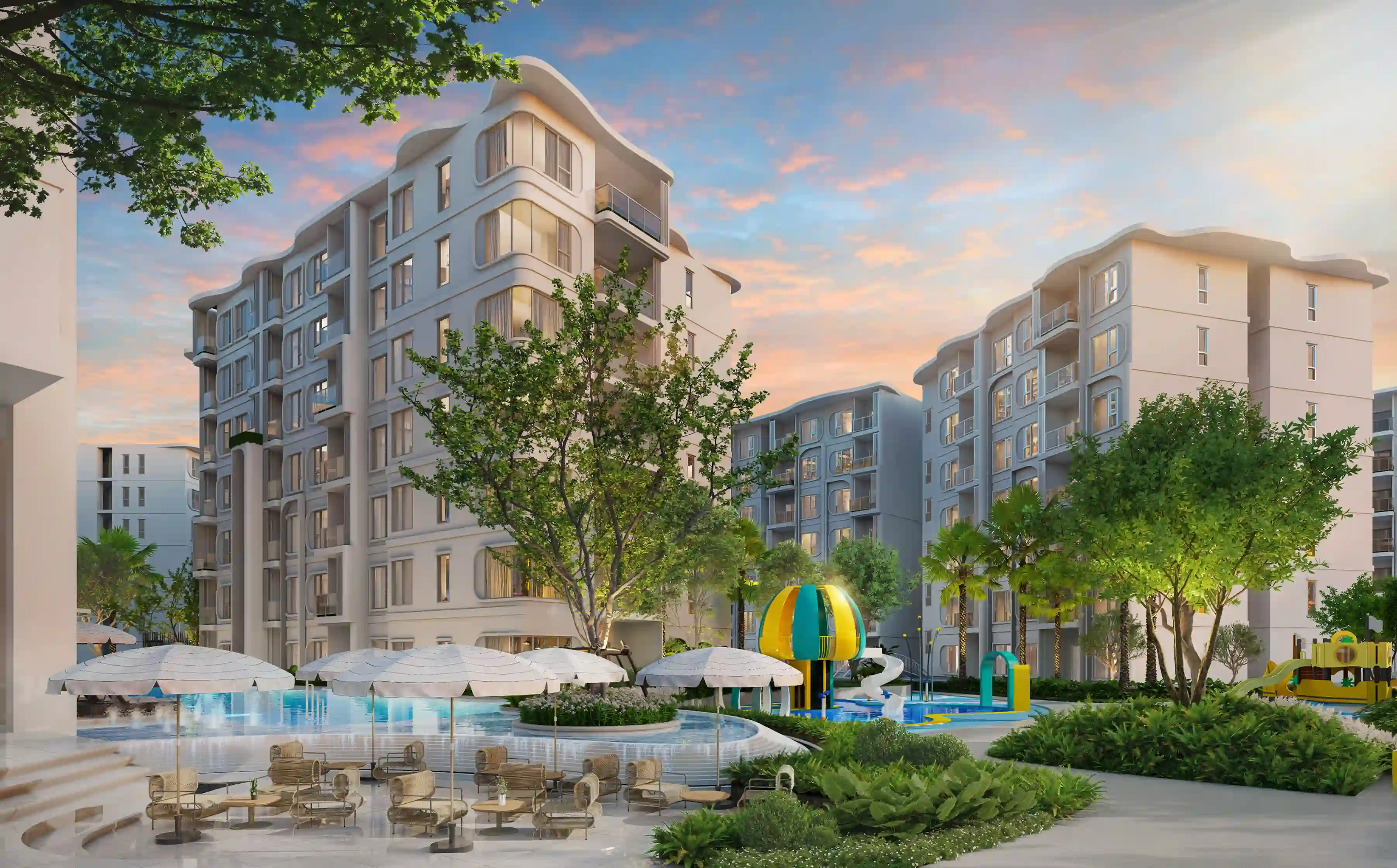

Grigory Kosych
Teamlead
Over 700 new condominium projects are currently under construction in Phuket — more than triple the supply from just 5 years ago. Yet foreign buyers are securing units faster than developers can deliver them, with some premium developments selling out during the foundation stage.
This buying frenzy isn't driven by speculation. Phuket condos generate 5–12% annual rental yields while prime beachfront locations have delivered 15–25% capital appreciation during construction.
This guide shows you how to navigate Thailand's legal framework, identify high-potential projects, and structure your purchase for maximum returns.
$90,000
Entry threshold for buying a condo unit
Up to 15% per year
Property prices growth
5–12% per year
Condominium rental yields
What is a condominium in Thailand?
In Thailand, condominiums have become the most accessible and practical property format for foreigners. Land plots are available only through leasehold, but condos give buyers more flexibility: they can be purchased either under freehold or leasehold title.
Freehold means full ownership of the unit with no time limit. Leasehold, by contrast, is registered for 30 years with the option to extend, yet in practice it remains just as secure. Both schemes are widely used on the island — the choice comes down to the project itself and the buyer’s investment strategy.
Ownership structure
A condominium is a collective development where buyers own their individual apartments, while the infrastructure — pools, gyms, lobbies, lifts, parking — is managed jointly through a juristic person, or homeowners’ association. This system keeps expenses predictable and ensures professional upkeep of the property through the monthly CAM — common area management fee.
Construction and sales cycle
Most projects are completed within 20–30 months. Sales usually open long before construction even begins, often giving early investors a 15–25% price advantage compared to post-completion values.
Developers compete for these early buyers: flexible payment schedules, long installments, and in some cases, extra perks such as full furnishing or extended discounts. Entering early often means securing both better terms and stronger growth potential.
Delivery standards
New-build condominiums in Thailand are handed over fully finished and ready to move in. A standard package includes:
Built-in wardrobes
Kitchen cabinets
Air conditioning
Stovetop
Extractor fan
Water heater
Sanitary ware
In recent years, competition among developers has led to generous offers: full furniture sets, branded appliances, or even “turnkey” packages. By 2024, more than two-thirds of new Phuket projects included such bonuses, making them attractive for buyers who want rental income from day one.
Premium segment
High-end condominiums are now competing with resorts in terms of lifestyle. Rooftop infinity pools, multi-level water complexes, thermal spa zones, outdoor cinemas, floating bars, private beach clubs, and integrated shopping areas are no longer rare. Some projects dedicate entire buildings to co-working spaces or multi-level parking.
Beyond facilities, premium complexes stand out for higher construction standards, international property management, and developers with long track records. According to CBRE Thailand, over 40% of luxury launches since 2022 are now operated by global hospitality brands — a factor that directly boosts occupancy and resale value.
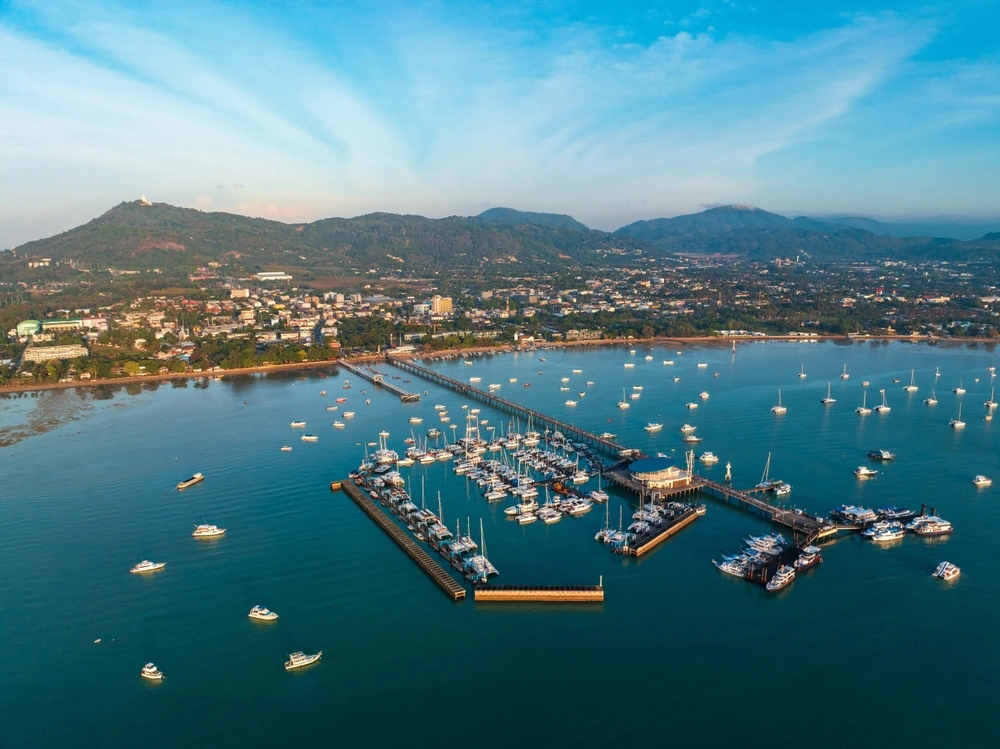
Need help finding the right property?
We vet every developer for track record, financial strength, and buyer feedback so only secure, high‑potential options make the cut.
Foreign ownership rights for condominiums in Thailand
Foreigners are allowed to buy residential property in Thailand, mainly through two legal options: freehold ownership and long-term leasehold agreements. Both are recognized by Thai law, but they differ in how much control you have, how long you can keep the property, and how much it costs.
Freehold ownership — full legal title and permanent control
With freehold, you fully own the condominium unit — just like a Thai citizen would. You can live in it, rent it out, sell it, or pass it on to your children. The ownership doesn’t expire and never needs to be renewed. However, there are some legal limits.
Legal restrictions. In any one condominium building, no more than 49% of the total space can be owned by foreigners. Also, the building must be officially registered as a condominium under Thai law. Some serviced apartments or apartment-style projects don’t qualify.
To register a condo as a foreigner, you must send the purchase money into Thailand in foreign currency. A Thai bank will give you a document called a Foreign Exchange Transaction (FET) form, which is required to transfer the title into your name.
Costs are higher for freehold ownership. Government fees and taxes for freehold ownership are 6.3% — more than 5 times higher than those charged for leasehold. Because of that, freehold makes the most sense for people who plan to keep the property long-term.
Leasehold ownership — long-term rights without foreign quota limits
Leasehold gives you the legal right to use the property for up to 30 years. All contracts also include two renewal options, giving you the chance to use it for up to 90 years in total. You don’t own the unit outright, but you can live in it, rent it out, sell the lease, or even pass it on to your heirs — as long as the agreement is properly registered.
Lower entry costs and simpler process. Leasehold is often used for villas, since foreigners aren’t allowed to own land in Thailand. But it’s also popular for condos. Many buyers like it because it’s cheaper, simpler, and doesn’t involve foreign ownership quotas. Government fees are lower too — usually around 1.1% of the property’s value.
Flexibility. Some developers offer the option to upgrade from leasehold to freehold later, if there’s still room in the 49% quota.

Grigory Kosych
Teamlead
Leasehold is more common among investors — especially those who want rental income or plan to sell in a few years. It offers flexibility, lower upfront costs, and fewer legal steps.
Freehold, on the other hand, is preferred by people buying a permanent home or for cautious buyers who place extra value on the idea of perpetual title. In Phuket’s prime projects, competition for the limited freehold quota does exist, but it represents a smaller niche compared with the broader leasehold market.
Grigory Kosych
Teamlead
Why global investors are choosing Phuket over other Thai destinations
Among all property markets in Thailand, Phuket stands out as the country’s most dynamic and internationally driven destination. The island combines year-round tourism, limited land availability, and global buyer demand — factors that make its condominium sector one of the strongest in Southeast Asia.
Phuket’s condo market is moving at record speed. By mid-2025, more than 700 residential projects were under construction — from boutique apartment blocks to full-scale resorts. The pace is high, but demand keeps up: retirees, holidaymakers, digital nomads, and global investors continue to absorb supply.
In 2024 alone, 5,739 new condo units were delivered — more than double the pre-pandemic peak of 2018. The island’s west coast remains the epicenter: Bang Tao and Layan together account for over half of all new launches, confirming their status as Phuket’s investment hotspots.
Phuket property shortlist
Phuket property shortlist
7 key advantages of buying a condominium in Thailand
1. Lower entry price. Condominiums are the most affordable gateway into Phuket’s market. Studios and one-bedroom units start at $90,000–130,000, while residences with direct beach access often begin at $150,000. Larger two- and three-bedroom layouts remain accessible compared with villas, which frequently exceed $500,000.
2. Higher rental yields. Tourism is the island’s growth engine. Well-located condos in prime resort areas deliver up to 12% net returns annually, with branded residences and beachfront projects consistently outperforming.
3. Professional property management. Most new developments include dedicated management teams handling bookings, maintenance, and guest support. For overseas investors, this means a ready-made rental business — with income that doesn’t depend on being on the ground.
4. Strong capital appreciation. Buyers who enter early often see 25%+ value growth from presale to completion. Scarcity of prime land and the rise of branded projects push prices higher, particularly along the west coast.
5. High liquidity. Condominiums resell faster than villas or standalone homes. A clear ownership structure, combined with consistent demand from expats and investors, makes it easier to exit when needed.
6. Comprehensive infrastructure and security. Modern projects go well beyond a pool and a gym. Standard today: 24/7 security, reception desks, CCTV, parking, and full facility management. This is what keeps both residents and tenants comfortable — and drives rental demand.
7. Flexibility of use. Condos adapt easily: they work as permanent homes, seasonal escapes, or income-generating rentals. For many buyers, this balance between lifestyle and investment is the main reason Phuket’s condo market keeps expanding.
Types of condominiums in Thailand
Phuket’s condominium market is broad, but the strongest demand is concentrated along the coastline. Beach proximity and resort infrastructure drive both rental income and resale value, which is why new projects cluster in tourist zones. Central districts, by contrast, are dominated by villas or older condo stock, with limited appeal for new buyers.
Resort-style condos are the backbone of Phuket’s market. Found in Patong, Kata, Bang Tao and other coastal hubs, these projects are designed around pools, landscaped gardens, spas, and rooftop lounges. They create a year-round holiday atmosphere and consistently attract rental investors thanks to stable tourist demand.
Branded residences are the premium tier of Phuket’s condo market. Managed by hotel groups such as Wyndham, Ramada or Movenpick, these developments offer concierge services, international-standard management, and strong resale potential. Pricing reflects both brand equity and prime beachfront locations, but the value is reinforced by higher occupancy and liquidity.
Compact beachside units are smaller projects near the shore with practical layouts and lower entry prices. They appeal to buyers looking for an affordable holiday home or a straightforward rental property within walking distance of Phuket’s main beaches.
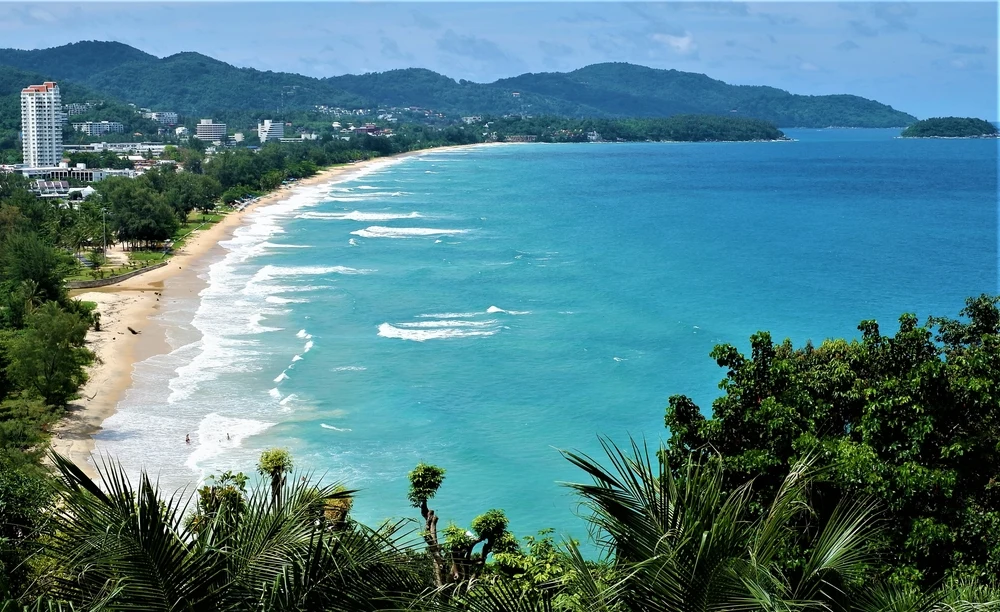
Want early access to top investment deals?
We’re among the first to know about hottest presales to help clients secure the best units before public launch.
How much it costs to buy a condo in Thailand
Phuket offers a wide range of condominium options for foreign buyers, from compact studios to spacious multi-bedroom apartments. However, the island is geographically limited, and strict construction regulations further restrict new development. As a result, land near prime west-coast beaches is increasingly scarce, driving steady price growth and making beach-access properties harder to secure.
Pricing depends on several key factors:
location,
distance to the beach,
views,
the level of surrounding infrastructure.
Completed buildings within walking distance to the beach — especially in Bang Tao and Nai Yang — command premium prices, as they are among the last areas where new development close to the sea is still possible.
In saturated zones such as Kamala and Kata, heavy development has pushed new projects further inland. This reduces sea views, walkable beach access, and rental appeal — factors that generally keep prices lower compared to the prime beachfront markets.
Typical entry prices:
Studio — $90,000
1-bedroom — $130,000
2-bedroom — $250,000
3-bedroom — $350,000
Instalment plans and developer financing. In Phuket, most new-build projects let buyers spread out payments during construction without paying interest. Usually, you start with a down payment of 20–50%, and the rest is paid in stages that follow the construction schedule. These instalments span 18–30 months.
Some developers also provide post-handover plans, which means you can move into the property and pay part of the price later. In these cases, up to 50% of the cost can be deferred for as long as 5 years, though interest of around 3–12% per year is charged on the remaining balance.
Taxes & fees. Transaction costs vary depending on the form of ownership. For freehold resale transactions, a government transfer tax applies — 6.3% if the seller has owned the unit for less than 5 years, or 3.5% if held longer. This fee covers the transfer of title to the new owner and is either paid fully by the buyer or shared equally between buyer and seller, depending on the agreement.
In leasehold projects, since no ownership title changes hands, the buyer pays a 1.1% registration fee. The leasehold right itself is simply reassigned to the new purchaser.
Investment strategies for buying a condo in Thailand
Thailand’s condo market offers several ways for foreign buyers to invest, depending on their financial goals and how involved they want to be. Phuket’s strong tourism industry creates good opportunities for returns, though seasonal demand means each approach requires careful planning.
By-to-resell strategy
This strategy focuses on capital growth. Investors purchase units at an early stage of construction and then sell them before or soon after completion.
How it works:
Off-plan properties often rise in value by 10–15% per year during construction.
Holding a unit for 1.5–3 years can result in total gains of 20–40% in popular projects.
Premium developments sometimes deliver even higher returns — 50–100% — when sold right before completion.
To resell, buyers must fully pay off the unit first, since developers’ instalment plans cannot be transferred.
Market context. In Phuket, demand is rising while new beachfront developments are limited. Condo prices in prime locations continue to grow 5–8% a year after completion. This trend is expected to continue into 2025, especially in coastal areas such as Bang Tao and Nai Yang, where limited supply and strong buyer interest keep pushing values upward.
Rental strategy
Short-term rentals. This approach targets holidaymakers and can generate higher profits, often 7–12% per year, through nightly or weekly bookings.
Key features:
Professional management companies can oversee rentals, meaning owners do not need work permits.
Independent self-management requires a Thai work permit.
Adjusting pricing during peak seasons boosts income.
Owners can also use the condo themselves when it is not rented.
Long-term rentals. This option focuses on stable income with less day-to-day management, usually renting to expats, professionals, or families for extended stays. Yields are typically 5–8% per year.
Key features:
No work permit needed for foreign owners.
Tenants usually cover utilities and minor upkeep.
Low vacancy rates and steady cash flow.
Minimal involvement from the owner.
The main drawback of long-term rentals is that the returns are lower compared to short-term stays. Rental contracts also limit flexibility in adjusting prices, and the owner cannot use the property while it is leased out.
Dual-mode rentals. This hybrid strategy combines long-term leases during low season with short-term rentals during high season.
How it works:
From May to October, secure longer-term tenants for stability.
From November to April, switch to nightly rentals to capture peak tourist rates.
This balance reduces vacancy risk while improving returns.
Success depends on flexible leasing terms and good management coordination.
This approach works best for investors who want a mix of stability and higher yield, especially in areas that attract both tourists and long-term residents throughout the year.
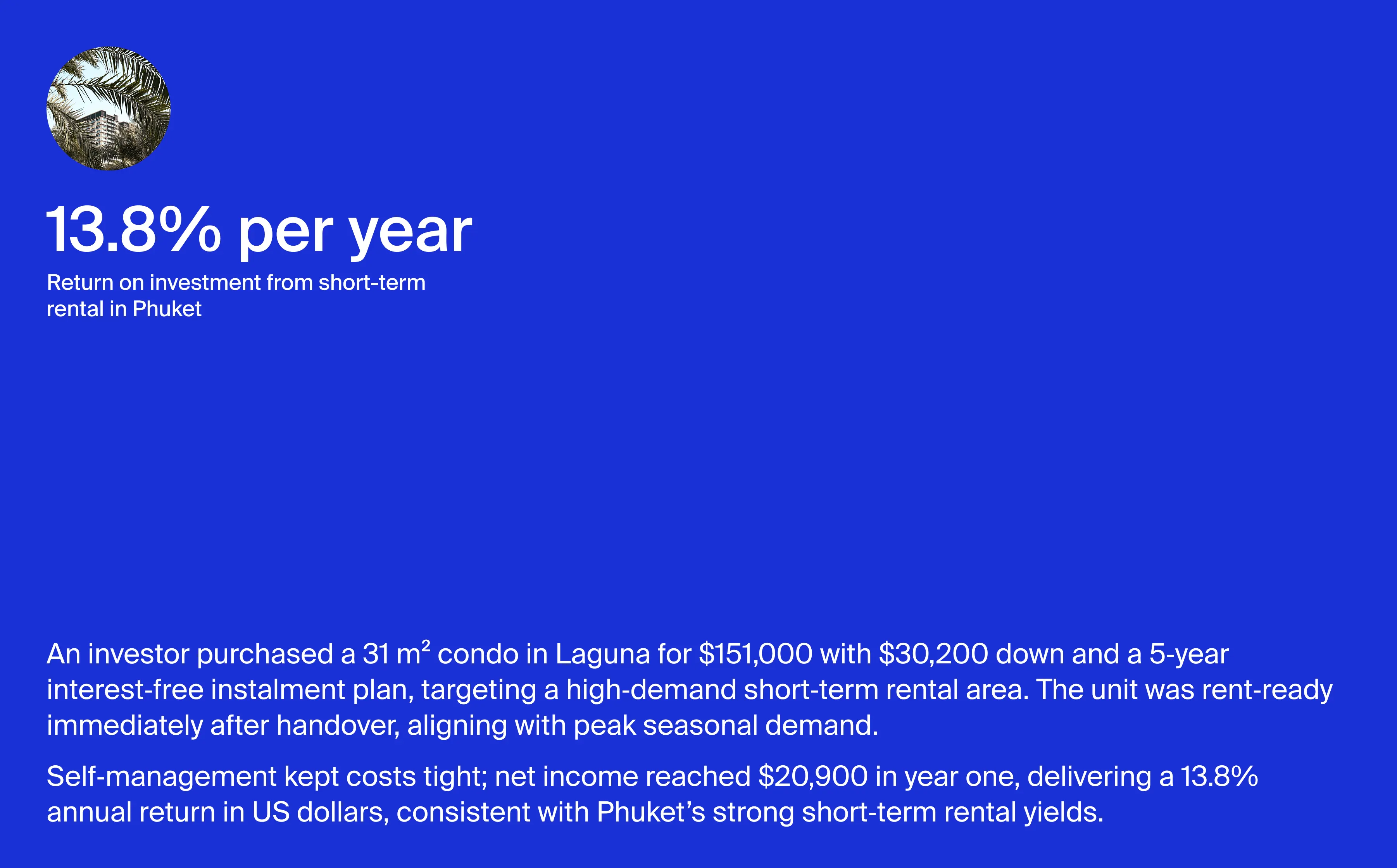
Step-by-step guide to acquiring a condo in Thailand
Investing in a condo in Thailand can open the door to both a rewarding lifestyle and solid financial returns. At the same time, the process may seem complicated if you are looking from abroad. From choosing a trustworthy developer to understanding the details of local contracts and property rights, there are many details to get right.
That is where the Neginski team comes in. Our analysts act as your trusted partners on the ground in Thailand, guiding you through each step and making the entire journey safe, clear, and stress-free.
1. Choosing the project and unit
We begin with your personal goals, budget, and preferences. Our team carefully selects the best projects available, checking each developer’s reputation, the quality of construction, and the long-term investment potential. We then help you choose the apartment that suits your needs best.
2. Negotiating the terms
Our specialists handle the negotiations with the developer for you. We aim to secure the most favorable conditions: discounts on price, convenient payment plans, furnishing options, and rental arrangements if you plan to lease your property. For projects still under construction, we also check the timeline and the developer’s commitments.
3. Reserving your condo unit
To lock in your choice, we help you sign a booking agreement and make the initial deposit, usually 2–5% of the property’s price. Make sure you understand all the details upfront, including the fact that reservation deposits are generally non-refundable if the purchase does not go ahead.
4. Making the first payment
Before you make the first large payment, which is usually 20–50%, we carefully review the main purchase agreement. This contract confirms the final price, the payment schedule, and the developer’s obligations during construction. Our goal is to make sure all the terms agreed during negotiations are clearly recorded in the contract.
5. Paying according to the schedule
The rest of the price is normally paid in several stages as construction progresses — for example, after finishing the foundation, the main structure, and the roof. We monitor the construction progress closely and keep you updated at every stage.
6. Handover and inspection
You do not need to be in Thailand to accept your new apartment. One of Neginski’s team members can handle the inspection in person and connect with you by video call if needed. We carefully check the quality of the finishing, appliances, and utilities. If there are any issues, we prepare a list of defects and make sure the developer corrects them.
7. Registering at the Land Department
Finally, we oversee the legal transfer of ownership at the Land Department. Our team supports you with paying official fees and taxes and collecting the title documents that confirm your property rights, whether this is full ownership or long-term lease.
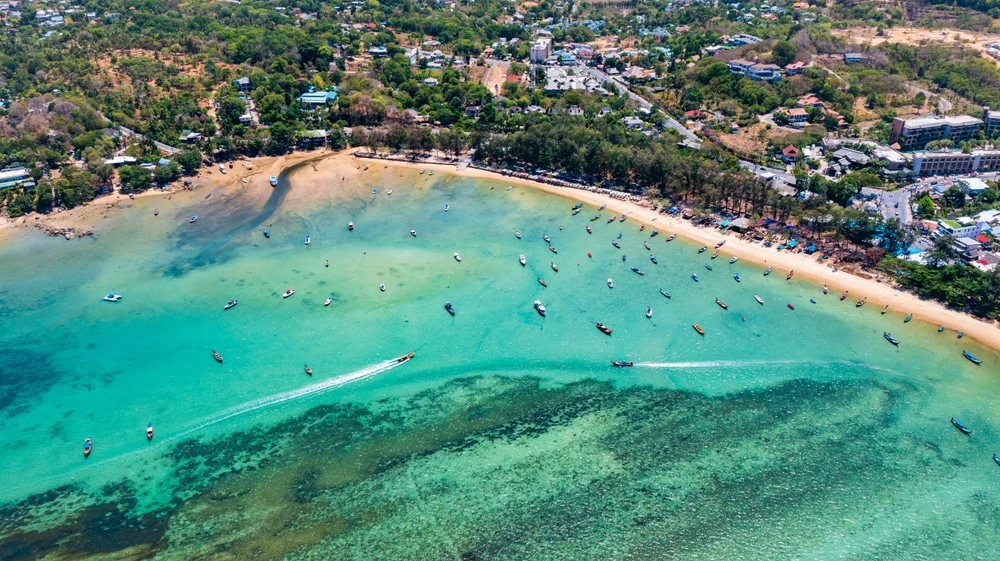
Focus on the profits — we’ll take care of the rest
From paperwork and tenants to daily management, our Care Department handles every step of your property investment.
Ongoing costs of owning a condo in Thailand
When you buy a condominium in Thailand, the purchase price is just the beginning. Like any property investment, there are ongoing expenses that affect your returns over time. These fall into three main categories: building maintenance, property management, and taxes.
Building maintenance costs
CAM fee. Every condo owner must contribute to the upkeep of shared areas like pools, gyms, elevators, and security systems. These common area maintenance (CAM) fees cost $2–3 per square meter per month and are usually billed once a year.
Sinking fund. At the time you take ownership, you'll also pay a sinking fund — a one-time contribution that goes into a reserve account for major future repairs like roof replacement or elevator upgrades. Think of this as insurance for the building's long-term condition.
Property management options
If you plan to rent out your unit, you have two main choices:
Self-management works well if you're targeting long-term tenants who will stay for months or years. You handle tenant screening, rent collection, and basic maintenance yourself.
Professional management makes sense for short-term rentals or if you live abroad. Management companies — including the developer's own rental team — handle everything from marketing and bookings to cleaning and repairs.
For vacation rentals, expect to pay 20–30% of your rental income in management fees. In hotel-style developments where the building operates more like a resort, the split can be less favorable — you might keep only 60–70% of the revenue.
Tax obligations
Annual property tax is based on the government's assessment of your condo's value, not what you paid:
Residential freehold condos: 0.02% per year
Leasehold or commercial properties: 0.3% per year
Rental income tax applies if you rent out your unit. Thailand uses a progressive tax system with rates from 0–35% based on your total income. Freehold owners can deduct 30% of rental income as expenses, while leasehold owners use a different calculation based on the property's value divided by 30 years. There's also a personal allowance of THB 30,000 per taxpayer.
If you overpay during the year, you can file for a refund when you submit your annual tax return.
Resale taxes depend on how long you own the property:
Less than 5 years: 6.3% total tax
More than 5 years: 3.5% total tax
Leasehold properties: 1.1% regardless of ownership period
These taxes are typically paid by the buyer or split 50/50 between buyer and seller, depending on what you negotiate.
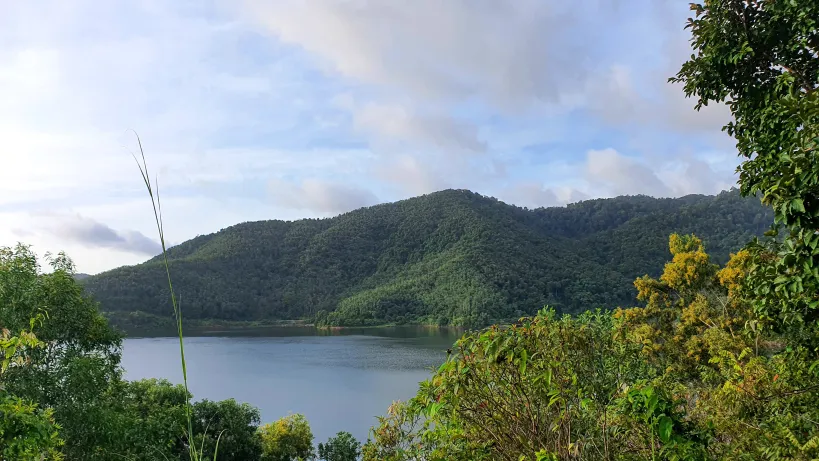
Know your returns before you invest
We’ll assess your goals and opportunities and run the numbers.
Visa options for living in your Thai condo
Buying a condo in Thailand doesn't automatically give you the right to live there long-term. As of 2025, Thailand has become more welcoming to international visitors. Citizens of 93 countries can enter visa-free for short stays, and the government has introduced several new long-term visa programs.
1. Destination Thailand Visa (DTV) — perfect for digital nomads and flexible lifestyles. This 5-year visa allows you to stay for 180 days at a time, with the option to extend for another 6 months. It's designed for remote workers, freelancers, people taking courses, or those pursuing wellness activities. Your family members can be included on the same application.
2. Thailand Privilege Visa — the premium option. Formerly known as Thailand Elite, this is essentially a VIP membership program that costs from THB 650,000 for 5 years up to 20-year packages. Some luxury condo developers offer this visa as a bonus when you purchase properties worth THB 10 million or more. While holders get airport fast-track services and other perks, you cannot work on this visa.
3. Long-Term Resident Visa (LTR) — for high earners and retirees. This 10-year visa targets wealthy individuals, retirees with substantial pensions, and highly skilled remote workers. Benefits include a flat 17% income tax rate, exemptions on foreign-sourced income, and the ability to get a work permit.
4. SMART Visa — for entrepreneurs and specialists. If you're starting a business or working in Thailand's targeted industries like technology or biotechnology, this 2-year visa allows both you and your spouse to work legally.
5. Retirement Visa (Non-Immigrant O-A) — for those 50 and older. You'll need to prove either a monthly income of THB 65,000 or maintain THB 800,000 in a Thai bank account. The visa is issued for one year and can be renewed annually.
Risks and considerations when buying a condo in Thailand
Like any major investment, buying property in Thailand carries risks. However, most problems can be avoided with proper research and professional guidance. Here are the key areas to focus on and red flags to watch for.
Evaluating the developer
Track record matters most. Look for developers with a history of completed projects you can actually visit and inspect. Ask to see their portfolio and, if possible, speak with existing owners about their experience. New or unproven developers may offer attractive prices, but they also carry higher risks of delays, quality issues, or even project cancellation.
Legal standing and permits. Verify that the developer is properly registered with Thailand's Department of Business Development. They should hold all necessary construction permits and condominium licenses for your specific project. A reputable developer will readily provide this documentation — any hesitation is a red flag.
Delivery performance. Research whether the developer has a pattern of meeting promised completion dates. Delays are common in construction, but chronic lateness or poor communication during construction often signals deeper management problems.
Contract and legal protection
Professional legal review is essential. Before signing anything, have a qualified agent or lawyer review all documents. They should verify that the ownership documents are legitimate, the sale agreement protects your interests, and all promised features and specifications are clearly written into the contract.
Warranty and after-sales support. Make sure your contract clearly defines what happens if there are defects after handover. Good developers typically offer 1–2 year warranties on major systems and will address issues promptly. Vague warranty terms or developers who are difficult to reach after the sale can leave you with expensive problems.
Final thoughts about buying condo in Thailand
Thailand’s condominium market has matured into one of the most open and profitable options for foreign buyers in Asia. It combines something rare: clear ownership rights, flexible developer financing, and professional management systems that make investing more accessible than in many Western markets.
Phuket, in particular, stands out. Strong rental yields of 5–12% per year, steady capital growth in the double digits, and ongoing infrastructure upgrades have made it one of the most resilient property markets in the region.
With new visa pathways bringing more long‑term residents and tourism steadily recovering, buyers of prime beachfront condos are well placed to see both reliable income and future price gains.
FAQ
-
Yes, foreigners can legally buy condominiums in Thailand through two main options: freehold ownership and leasehold agreements. However, in any condominium building, no more than 49% of the total space can be owned by foreigners under freehold title. For freehold purchases, you must bring the money into Thailand in foreign currency and obtain a Foreign Exchange Transaction (FET) form from a Thai bank.
-
With freehold ownership, you own the condo permanently with no time limit — just like a Thai citizen would. You can live in it, rent it out, sell it, or pass it to your children without any expiration. Leasehold ownership gives you legal rights to use the property for up to 30 years, with two renewal options allowing for up to 90 years total.
-
Freehold means you fully own the unit with permanent control and no time restrictions, but it costs more and is subject to the 49% foreign ownership quota. Leasehold gives you long-term usage rights for 30 years, renewable up to 90 years total, with lower costs, simpler processes, and no foreign ownership quota limitations.
-
No, you don't need to be physically present in Thailand to buy a condo. Neginski’s team can handle negotiations, document reviews, and even the final inspection and handover process on your behalf. Many transactions are completed remotely, with inspections conducted via video calls.
-
For freehold ownership, government transfer taxes are 6.3% if the seller owned the unit for less than 5 years, or 3.5% if held longer than 5 years. For leasehold properties, buyers pay a 1.1% registration fee regardless of ownership period. These fees are typically paid by the buyer or split 50/50 between buyer and seller, depending on the negotiated agreement.
-
There are no legal restrictions preventing foreigners from renting out their condos in Thailand. However, if you want to manage short-term rentals independently, you need a Thai work permit. Professional management companies can handle rentals without requiring the owner to have a work permit, making this a popular option for foreign investors living abroad.
